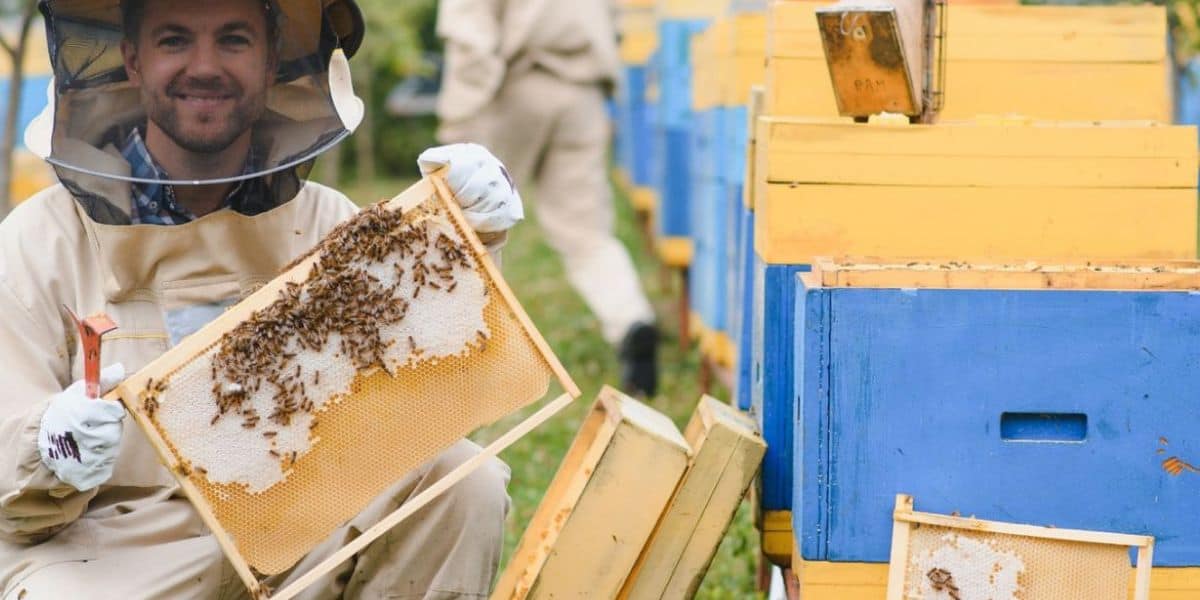What is Beekeeping Called: Beekeeping, the age-old practice of nurturing and managing colonies of bees, goes by various names, reflecting the rich diversity of cultures and languages around the world. Whether you call it beekeeping, apiculture, or by a regional term, the essence remains the same: the careful tending to bees for the purpose of honey production, pollination, and other hive-related products. Let’s delve into the linguistic and cultural tapestry that surrounds the practice of beekeeping.
1. Beekeeping: A Universal Term
In English-speaking regions, the term “beekeeping” is the most widely used and recognized. It succinctly captures the essence of the activity — the keeping or management of bees. Beekeeping involves not only the cultivation of honey but also the maintenance of bee colonies, ensuring their health, and leveraging their pollination prowess for agriculture.
Variation: Beekeeper, Beehive
2. Apiculture: The Science and Art of Beekeeping
Derived from the Latin word “apis,” meaning bee, and “cultura,” meaning cultivation, apiculture is a term that emphasizes the scientific and agricultural aspects of beekeeping. It encompasses the breeding, care, and maintenance of bee colonies. Apiculture is not only about honey production but also involves studying the behavior of bees, understanding their life cycle, and addressing challenges like diseases and pests.
Variation: Apiculturist
3. Melittology: The Study of Bees
While not a term specifically for beekeeping, melittology deserves a mention. It refers to the scientific study of bees, covering their taxonomy, physiology, ecology, and behavior. Beekeeping enthusiasts often find themselves delving into melittology to deepen their understanding of these fascinating insects.
Variation: Melittologist
4. Bee Husbandry: Nurturing Bee Colonies
Similar to livestock husbandry, bee husbandry involves the care, breeding, and management of bee colonies. This term underscores the responsibility and stewardship associated with beekeeping. Beekeepers, in this context, are akin to caretakers, ensuring the well-being and productivity of their buzzing charges.
Variation: Bee Husbandman
5. Backyard Beekeeping: A Popular Trend
In recent years, the term “backyard beekeeping” has gained popularity, especially in urban and suburban settings. It reflects the trend of keeping bees on a smaller scale, often in residential areas. Backyard beekeeping emphasizes the accessibility of this practice to individuals and families interested in sustainable living and supporting local ecosystems.
Variation: Urban Beekeeping, Small-Scale Beekeeping
6. Regional Terms: Reflecting Cultural Diversity
In different parts of the world, beekeeping is referred to by regional terms that highlight the cultural and linguistic nuances of the practice. For example:
- Apicoltura (Italian): Emphasizing the Italian tradition of beekeeping.
- Imkerei (German): Reflecting the German approach to beekeeping.
- Abeille (French): Signifying beekeeping in the French-speaking world.
Variation: Localized Terms
Conclusion: A Sweet Symphony of Names
In conclusion, “What is Beekeeping Called” depends on the context, language, and cultural traditions. Whether you’re a beekeeper, an apiculturist, or a backyard enthusiast, the love for bees and the art of tending to their colonies transcends linguistic boundaries. So, no matter what term you use, the symphony of bees buzzing amid blooming flowers remains a sweet and essential part of our interconnected ecosystem.
Beekeeping, apiculture, or whatever you choose to call it, is not merely a practice; it’s a harmonious dance with nature that enriches our lives and the environment. 🐝🌸

